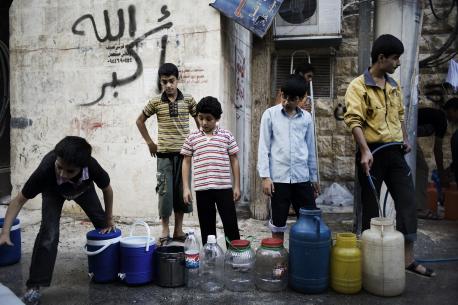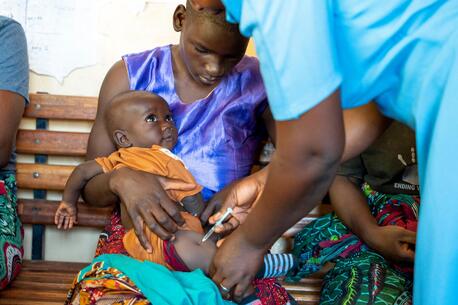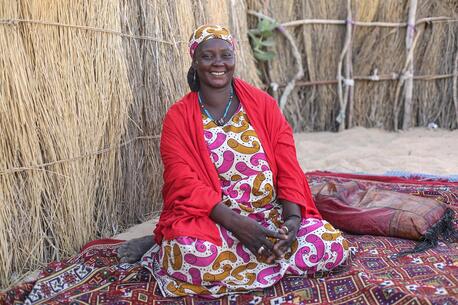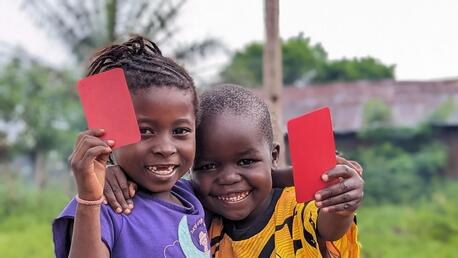
UNICEF Provides Water in Syria
The on-going conflict in Syria has caused enormous damage to the country’s essential water and sewage systems, putting millions of people at risk of waterborne diseases, and creating huge challenges for the sector as the conflict moves into its fourth year.
According to our recent report ‘Under Siege’, more than a third of water treatment plants have been destroyed, while by the end of 2012, the amount of safe water consumed by families across Syria had already fallen 40 per cent from pre-crisis levels.
The water-related humanitarian work is carried out with national partners from Water Resources, Local Administration, and the Syrian Arab Red Crescent (SARC).
Frequent electricity cuts and lack of fuel supplies for backup power have contributed to declining efficiency of water networks and pumping stations, and increased processing costs. The security situation hampers access needed to rehabilitate water infrastructure such as treatment plants and water pipe networks.
There is also an increased risk of the spread of waterborne diseases, particularly as summer approaches. Many of the more than 6.5 million people – including almost 3 million children – displaced inside Syria are living in overcrowded conditions with lack of access to water and sanitation facilities both in shelters and in the host community.
During 2013, UNICEF in partnership with ICRC supported chlorination efforts to provide 10 million people – almost half of the population – with access to safe water. UNICEF also worked closely with ministries and water authorities, providing essential equipment – including generators, pumps, and spare parts – along with technical support to strengthen the water infrastructure and ensure water continues to flow, including in hard-to-reach locations.
UNICEF also worked closely with SARC to help vulnerable conflict-affected populations understand and protect themselves against the threat of waterborne diseases. More than 540,000 people were reached during 2013 with hygiene promotion messages.
“Partnerships are key to the provision of a strong, coordinated, and coherent water, sanitation, and hygiene response, especially in the context of the on-going crisis, where assistance is lifesaving.” — UNICEF Syria Representative, Youssouf Abdel-Jelil
With the recent Security Council Resolution calling for opening up of humanitarian access to hard-to-reach and besieged areas, UNICEF is ready to increase the reach of its emergency water, sanitation, and hygiene programmes wherever possible.
During 2014, UNICEF will continue to support water authority systems with chlorine supplies to ensure millions of people continue to have access to safe drinking water. A key priority will be the scale up of water, sanitation and hygiene services with more focus on prevention of water-borne disease and hygiene promotion activities targeting communities and schools in hard to reach areas.


